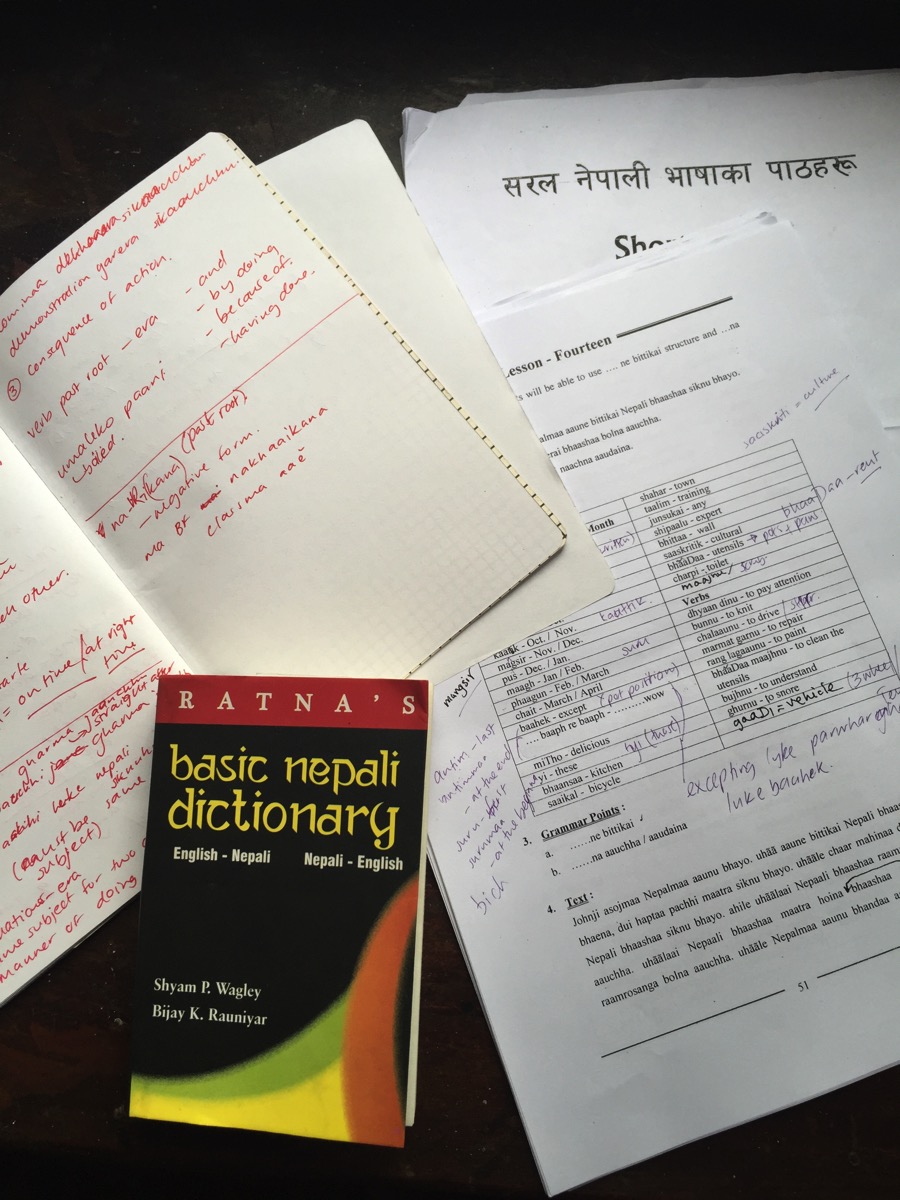
When we arrived in Nepal three months ago, we had not learnt any Nepali. All medical services and teaching is done in English here, so language is not essential, theoretically. Patients, however, don’t speak english, and most shopkeepers and other nepalis also have limited english. Typically, missionaries would have three or four months intensive language teaching in a bigger centre like Kathmandu or Pokhara before landing “on site”. However, in our situation, the hospital really needed general surgeons, and we were staying for only six months, too short for intensive time.
So when Luke and I arrived in Tansen, we launched into intensive lessons alongside our regular work. We learn with a very experienced teacher, Khila, who is a font of information about culture and politics of Nepal, as well as local dialects, informal and formal speech. We have been doing about four hours of lessons a week each, one on one. We learn a spoken form of the language, with phonetic spelling. Once we progress further, we will learn written language and Devanagari script. Our classes follow a basic course, but are also tailored to our needs. For example, Luke learnt numbers and shopping phrases before I did, and I know a lot of medical phrases.
I’m hoping that everyone feels the same about this, but it seems that I am continually working on my language, but never getting any better. Classes are mentally exhausting, and I work on my vocab flashcards through the week in free minutes. I feel like I’ve been transported back in time and I’m studying for my exam again. I find I dread lessons in advance, although I enjoy them when I am there. Its challenging when your teacher asks (in nepali) how I feel about speaking nepali. I can never decide whether it’s easy or hard, fun or just hard work.
Objectively, I know I am improving, but it is very frustrating to participate in a ward round and not be able to understand what decision was made. Furthermore, in Australia I prided myself on explaining to patients and reassuring them. I wanted to be the surgeon who communicated and I worked hard on it. But here, there is no way. One of the Nepali surgeons here uses grand metaphors to explain treatments to patients, and I always feel clever when I can at least pick what the metaphor was about!
But sometimes, the experience can be simply funny. Nepalis are very cool people with a great sense of humour. We had a disturbing patient with maggots in a wound, and most people who met her were disturbed by it. As I was removing the maggots and cleaning the wound, an Aussie anaesthetist and I realised we didn’t know the Nepali word for maggot. So I asked my resident..
“What do you call these?”
“Insects” (in Nepali).
Of course. This from a country that has at least seven different words for rice.
Leave a Reply